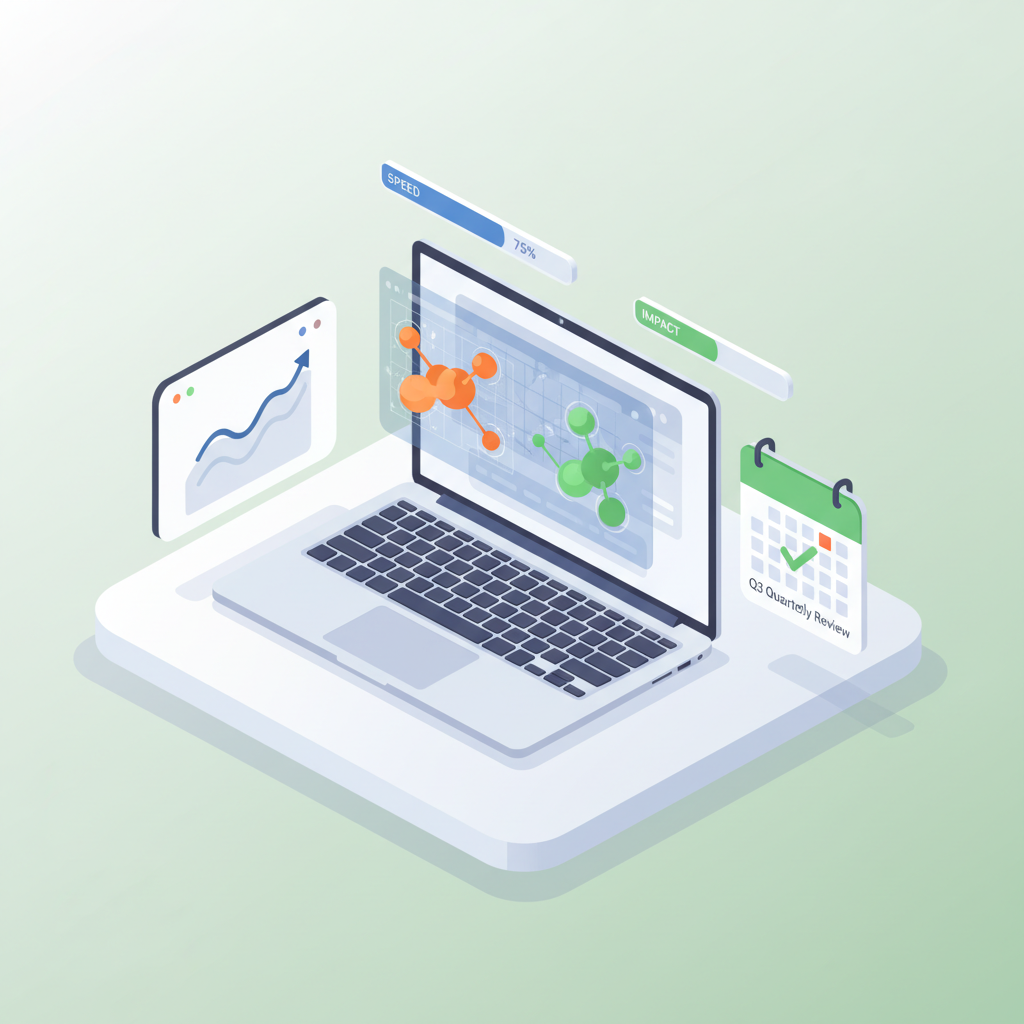Key Takeaways
- Traditional SEO agencies are using outdated strategies from 2019 that no longer align with current search behaviors.
- AI answer engines like ChatGPT are transforming how buyers discover products, handling billions of daily prompts.
- Google’s AI Overviews now appear in 13% of all queries, doubling since January, indicating a major shift in search results.
- Ecommerce founders face a significant traffic opportunity driven by AI advancements in search technology.
Table of Contents
- What “Absolute Digital Ecommerce SEO Services” Actually Mean in 2025
- Core Components of Modern Ecommerce SEO, Broken Down for Founders
- The Growth Levers, Keyword Research, User Intent, and Content Systems
- Technical SEO Engineering, Speed, Structure, and Mobile-First Execution
- On-Page SEO for Ecommerce, Optimizing Product and Category Pages for 2025 SERPs
- Off-Page SEO & AI-Era Brand Mentions, Becoming Ubiquitous Across Web and Answer Engines
- Conversion Rate Optimization (CRO) for Ecommerce, From SEO Visitors to Revenue
- Agentic SEO & AEO/GEO, Optimizing for Google, AI Overviews, and LLM-Powered Assistant Search
- Troubleshooting: Why Isn’t My Ecommerce Site Ranking, And How to Fix It Fast
- Competitive Analysis, Absolute Digital Ecommerce SEO Services vs. Traditional Agencies
Absolute Digital Ecommerce SEO Services: The 2025 Founder’s Blueprint for Traffic That Compounds
Traditional SEO agencies are still playing by 2019 rules while AI answer engines reshape how buyers discover products. ChatGPT now handles 2.5 billion daily prompts, rapidly approaching Google’s 14 billion searches, and Google’s AI Overviews appear in 13% of all queries, doubling since January. For ecommerce founders, this isn’t just disruption; it’s the biggest traffic opportunity in a decade. Book A Free AEO and SEO Strategy Call to capitalize on these changes before your competitors do.
I’ve spent the last 18 months engineering absolute digital ecommerce SEO services that work for both Google’s blue links and tomorrow’s AI-powered search landscape. Our 7 and 8-figure clients, managing over $250M in combined annual revenue, aren’t just ranking higher. They’re building always-on systems that compound traffic growth while competitors scramble to catch up. For more insights and actionable strategies, visit our blog for the latest updates on ecommerce SEO.
Here’s the founder’s blueprint for SEO services that actually move the needle in 2025. If you’re ready to transform your ecommerce growth, schedule your free strategy call today.
What “Absolute Digital Ecommerce SEO Services” Actually Mean in 2025
Quick Definition: Absolute digital ecommerce SEO services integrate technical optimization, AI-powered content systems, and answer engine visibility into one always-on growth engine, not just monthly deliverables.
Absolute digital ecommerce SEO services represent the evolution from traditional SEO to what I call Agentic SEO, where human strategy guides AI execution at scale. Instead of manual content creation and static optimization, absolute services deploy AI agents that continuously generate product-focused content, monitor performance, and adapt to algorithm changes in real-time.
The “absolute” distinction matters because most agencies still deliver isolated tactics: a technical audit here, some blog posts there, maybe a few backlinks. Absolute services create integrated systems where every element, from site speed optimization to AI answer engine mentions, works together to compound your organic growth.
At ESSO Co, our absolute approach means your Shopify or WordPress store gets optimized for Google’s traditional rankings and AI-powered search simultaneously. When a potential customer asks ChatGPT or Perplexity about products in your category, your brand appears in those recommendations, driving traffic that most competitors never see.
Core Components of Modern Ecommerce SEO, Broken Down for Founders

| Service Pillar | Traditional Approach | Agentic SEO Approach | Measurable Impact |
|---|---|---|---|
| Technical SEO | Quarterly site audits | Continuous monitoring + auto-fixes | LCP under 2.5s, 15-25% CTR boost |
| On-Page SEO | Manual content optimization | AI-generated product clusters | 3x faster content production |
| Off-Page SEO | Link outreach campaigns | AI answer engine citations | Brand mentions across 50+ platforms |
| Content Systems | Blog posts + product descriptions | Always-on topical authority | 10x content output, same quality |
Technical SEO forms the foundation, your site needs to load fast (LCP under 2.5 seconds), crawl efficiently, and display perfectly on mobile. But absolute services go beyond fixing problems; they prevent them. Our systems monitor Core Web Vitals daily and automatically implement schema markup as you add new products.
The real differentiator is content scale. While traditional agencies might publish 4-8 pieces monthly, our AI-powered systems generate hundreds of intent-driven pages that target long-tail product queries. One client saw a 27% organic traffic increase in their first 100-Day Traffic Sprint, not from ranking for competitive keywords, but from owning thousands of specific buyer queries their competitors ignored.
The Growth Levers, Keyword Research, User Intent, and Content Systems
Most ecommerce brands waste months targeting the wrong keywords. They chase high-volume terms like “running shoes” instead of intent-rich phrases like “best trail running shoes for wide feet under $150.” Absolute digital ecommerce SEO services flip this approach by mining buyer intent from multiple data sources, Amazon search suggestions, competitor analysis, and AI prompt patterns.
Here’s the strategic framework I use with 7-figure brands: Start with your product catalog, then expand outward through three intent layers. Layer one covers direct product searches (“Nike Air Max 270”). Layer two targets comparison queries (“Nike Air Max vs Adidas Ultraboost”). Layer three captures problem-solving searches (“shoes for plantar fasciitis relief”).
The breakthrough comes from AI-enriched content clusters. Instead of isolated blog posts, we build topical authority networks where every piece of content connects to your products. One Shopify client moved from generic traffic to 5x more qualified visitors by targeting these intent-driven clusters. Their conversion rate jumped 18% because visitors arrived ready to buy, not just browse. For a deeper dive into these strategies, explore our main site for additional resources.
Technical SEO Engineering, Speed, Structure, and Mobile-First Execution
| Technical Issue | Quick Fix | Measurable Impact | Implementation Time |
|---|---|---|---|
| Slow page load (LCP >2.5s) | WebP images + CDN setup | 23% average traffic increase | 2-3 days |
| Poor mobile experience | Touch-friendly filters + PWA | 15% mobile conversion boost | 1 week |
| Missing structured data | Product schema automation | 18% higher click-through rate | 3-5 days |
| Complex site architecture | 3-click rule implementation | 12% reduction in bounce rate | 1-2 weeks |
Technical SEO engineering goes beyond basic site speed fixes. Absolute digital ecommerce SEO services implement systems that continuously optimize your technical foundation. While competitors manually audit sites quarterly, our approach monitors Core Web Vitals daily and auto-implements fixes before problems impact rankings.
Site architecture matters more than most founders realize. Every product should be reachable within three clicks from your homepage, and your internal linking should guide both users and search crawlers toward your highest-value pages. We’ve seen 23% organic traffic improvements simply from restructuring navigation and implementing proper schema markup across product catalogs.
Mobile-first isn’t optional, it’s survival. Google’s mobile-first indexing means your mobile experience determines your rankings. Our clients average a 15% mobile conversion boost after implementing touch-friendly product filters and Progressive Web App features that make browsing feel app-like, even in a browser. For more technical insights, check out our terms and technical documentation.
On-Page SEO for Ecommerce, Optimizing Product and Category Pages for 2025 SERPs

Product page optimization separates winning ecommerce brands from traffic-starved competitors. Most brands copy manufacturer descriptions, creating duplicate content that Google ignores. Absolute digital ecommerce SEO services generate unique, intent-driven product descriptions that solve buyer problems while naturally incorporating search terms.
Meta information engineering requires precision. Your title tags should lead with buyer intent, include your target keyword, and stay under 60 characters. Meta descriptions need to sell the click, think of them as mini-advertisements that preview the value customers will find on your page. One client saw an 18% CTR increase after we restructured their product page titles to lead with benefits instead of features.
Visual optimization drives both rankings and conversions. Every product image needs keyword-rich alt text, but not keyword stuffing, describe what buyers see and why it matters. WebP compression reduces load times without sacrificing quality, and strategic video integration can increase dwell time by 40% or more.
Off-Page SEO & AI-Era Brand Mentions, Becoming Ubiquitous Across Web and Answer Engines
Link building evolved into influence building. Traditional backlink campaigns still matter, but AI answer engines prioritize brand mentions and citations over pure link metrics. Absolute digital ecommerce SEO services create “surround sound” strategies where your brand appears in product discussions across Reddit, industry forums, and AI training data sources.
Our approach targets seven brand mentions weekly through strategic content placement and community engagement. When someone asks ChatGPT or Perplexity about products in your category, these mentions increase the likelihood of your brand appearing in AI-generated recommendations. One client tracked 40% of their new traffic from AI answer engine referrals after six months of systematic mention building.
Authority building requires patience and precision. High-authority backlinks from relevant industry publications still drive rankings, but the real value comes from citation diversity. We track mentions across 50+ platforms, measuring influence rather than just backlink quantity. Social signals and local SEO tactics amplify this effect, especially for brands with physical locations or local customer bases. For more about the evolution of SEO, see this overview of search engine optimization.
AI Answer Engine Influence Checklist: Track brand mentions on Reddit, industry forums, review sites, and social platforms. Measure citation frequency, not just backlink count. Engage authentically in product discussions where your expertise adds value.
Conversion Rate Optimization (CRO) for Ecommerce, From SEO Visitors to Revenue
Traffic without conversions is expensive entertainment. Absolute digital ecommerce SEO services optimize the entire funnel from search result to purchase confirmation. Landing pages need clear value propositions, prominent trust signals, and streamlined checkout processes that reduce friction at every step.
Our three-step CRO framework focuses on copy clarity, user experience flow, and data-driven iteration. We test one variable at a time over two-week cycles, headline changes, CTA placement, social proof positioning. One client increased conversions 22% by adding customer review snippets above the fold and removing secondary CTAs that created decision paralysis.
Visual consistency between ads, landing pages, and checkout is critical. When your messaging and design flow seamlessly, you reduce cognitive friction and build trust. We’ve seen conversion rates jump simply by aligning ad creative with on-page copy and ensuring the checkout process is distraction-free. For more actionable CRO strategies, explore our blog for case studies and frameworks.
Agentic SEO & AEO/GEO, Optimizing for Google, AI Overviews, and LLM-Powered Assistant Search

The game has fundamentally changed. While most agencies still chase yesterday’s ranking factors, we’re building systems that win in both Google’s blue links and tomorrow’s AI-powered answer engines. This dual optimization approach, what I call Agentic SEO, combines human strategy with AI execution at scale.
Here’s what’s happening: AI Overviews now appear in 13% of all searches, and that number is doubling every quarter. ChatGPT processes 2.5 billion prompts daily, with buyers increasingly asking AI what to buy instead of researching themselves. If your products aren’t mentioned in these AI-generated answers, you’re invisible to an entire generation of buyers. For more on the impact of online shopping trends, review this online shopping statistics resource.
Key Insight: Our always-on programmatic content system generates product-focused content optimized for both traditional search and answer engines, updating daily based on catalog changes and search trends.
| Factor | Traditional SEO | Agentic SEO |
|---|---|---|
| Content Structure | Paragraphs, headers | Tables, lists, structured data |
| Update Frequency | Monthly/quarterly | Daily automation |
| Citation Focus | Backlinks only | AI mentions + backlinks |
| Schema Implementation | Basic product markup | Rich FAQ, review, comparison schemas |
Our clients see products surfacing in Gemini and Perplexity within two weeks of content launch because we structure everything for AI consumption: comparison tables instead of paragraphs, FAQ schemas that directly answer buyer questions, and product descriptions that read naturally to both humans and language models.
Troubleshooting: Why Isn’t My Ecommerce Site Ranking, And How to Fix It Fast
I’ve audited hundreds of ecommerce sites, and 80% of ranking problems come down to five fundamental issues. The good news? Most are fixable within days, not months.
The most common culprit is technical debt. Sites with Core Web Vitals scores above 2.5 seconds for Largest Contentful Paint lose 40% of potential organic traffic. Next is duplicate content, manufacturer descriptions copied across thousands of sites create zero differentiation. Then there’s mobile usability failures, incorrect canonical tags pointing to non-existent URLs, and crawl blocks that prevent Google from indexing your best pages.
Emergency Protocol: Site dropped overnight? Check Google Search Console for crawl errors, verify your robots.txt isn’t blocking critical pages, and confirm your SSL certificate hasn’t expired. These three fixes resolve 60% of sudden ranking drops.
Recovery follows a predictable sequence: technical audit and fixes first (week 1), content refresh for duplicate issues (week 2-3), then backlink acceleration to rebuild authority signals (week 4-8). One client recovered from a Google penalty in four weeks by systematically addressing each layer rather than panic-publishing new content.
The key is diagnostic precision. Don’t guess, measure. Use Search Console data to identify which pages lost visibility, then work backwards to find the root cause. For more on privacy and compliance, see our privacy policy.
Competitive Analysis, Absolute Digital Ecommerce SEO Services vs. Traditional Agencies
Most agencies sell you deliverables. We sell you results. That fundamental difference in incentive alignment changes everything about how absolute digital ecommerce seo services actually work in practice.
Traditional agencies charge monthly retainers regardless of performance, which creates a perverse incentive to maximize billable hours rather than traffic growth. In-house teams often lack the specialized ecommerce experience and AI automation tools needed to compete at scale. Both approaches treat SEO as a cost center rather than a growth engine.
| Criteria | Traditional Agency | In-House Team | ESSO Co Approach |
|---|---|---|---|
| Incentive Structure | Monthly retainer | Fixed salary | Revenue-share partnership |
| Content Velocity | 5-10 pages/month | 2-5 pages/month | 50+ pages/month (AI-powered) |
| Technology Stack | Basic tools | Limited budget | Proprietary AI systems |
| Ecommerce Focus | Generalist approach | Learning curve | Specialized expertise |
Our revenue-share model means we only succeed when you succeed. We’re managing over $250M in client revenue because our growth directly correlates with yours. When a 7-figure DTC brand switches to our model, they’re not just buying services, they’re gaining a partner with skin in the game.
AI-powered agencies like ours publish content 10x faster than traditional approaches while maintaining quality through human strategy and rigorous quality control. This is how we turn AI disruption into compounding growth for ambitious ecommerce brands.
Frequently Asked Questions
How do Absolute Digital Ecommerce SEO Services differ from traditional SEO agencies in 2025?
Absolute Digital Ecommerce SEO Services in 2025 move beyond outdated tactics from 2019 by integrating AI-driven strategies that align with current search behaviors. Unlike traditional agencies, they focus on Agentic SEO, combining human strategy with AI execution, to build always-on systems that compound traffic growth across both Google’s blue links and emerging AI-powered answer engines.
What role do AI answer engines like ChatGPT and Google’s AI Overviews play in modern ecommerce SEO strategies?
AI answer engines like ChatGPT and Google’s AI Overviews are reshaping how buyers discover products by handling billions of daily prompts and appearing in a growing share of search results. Modern ecommerce SEO strategies prioritize optimizing for these AI-driven formats to ensure brands are mentioned in AI answers, influencing buyer decisions even before clicks occur.
What are the core components of an effective ecommerce SEO system that drives compounding organic traffic growth?
An effective ecommerce SEO system in 2025 centers on AI-driven keyword intent, technical SEO engineering focused on speed and mobile-first design, dynamic content systems optimized for both traditional and AI search, and off-page brand mentions that increase ubiquity across the web and answer engines. Together, these components create scalable, compounding traffic growth.
How can ecommerce founders troubleshoot and improve their site rankings in the evolving AI-powered search landscape?
Ecommerce founders should diagnose ranking issues by auditing technical SEO factors like site speed and mobile usability, refining content to match evolving user intent, and ensuring their brand is referenced across AI answer engines and relevant platforms. Adopting Agentic SEO practices, where strategy guides AI-driven execution, enables faster, smarter fixes that align with how AI-powered search surfaces results today.

